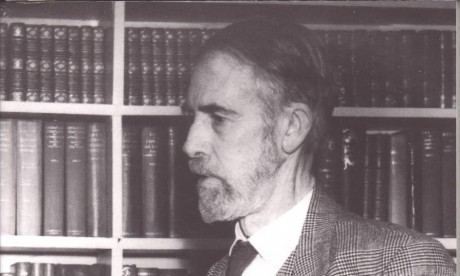Although largely ignored in its day, Christopher Dawson’s Christendom trilogy is the masterwork of one of the 20th century’s greatest thinkers.
As it turned out, the Christendom trilogy served as the last great work of English-Welsh historian and man of letters Christopher Dawson (1889-1970). Sort of. The trilogy derived, originally, from lectures Dawson had delivered while teaching at Harvard University between 1958 and 1962. As desired, the Christendom trilogy would consist of The Formation of Christendom (1967); The Dividing of Christendom (1965); and The Return to Christian Unity. (1) In the broad, each volume represented one of three great periods of the Christian world: the ancient-medieval nexus; the Reformation and Counter Reformation; and the Church in the age of democracy, nationalisms, and ideologies.
Though The Formation of Christendom is technically volume one of Christendom, it came out two years later than volume two, The Dividing of Christendom. The idea to publish the lectures as a trilogy came to Dawson in 1963. His publisher, Frank Sheed, readily agreed. The only question was whether to publish them separately as a three-part work or immediately as a three-volume set. (2) Sheed wanted to get them out as soon as possible, as he hoped the books would serve as the basis of discussions for the Second Vatican Council (1962-1965). Not unreasonably, Sheed had believed that Dawson—along with a number of other Christian Humanists, such as Jacques Maritain and Etienne Gilson—would serve as the intellectual touchstone and fountainhead for the council and its important deliberations and reforms. After all, important figures such as Romano Guardini had been calling for reformation of the liturgy since the 1920s. (3)
Nothing, as it happened, could have been further from the truth. With most Catholic theologians and publishers in the 1960s believing the Holy Spirit to have done away with much of the recent past, few outside of a small number of loyal followers still thought Dawson had much to contribute to the future of Catholicism. Continue reading
Sources
